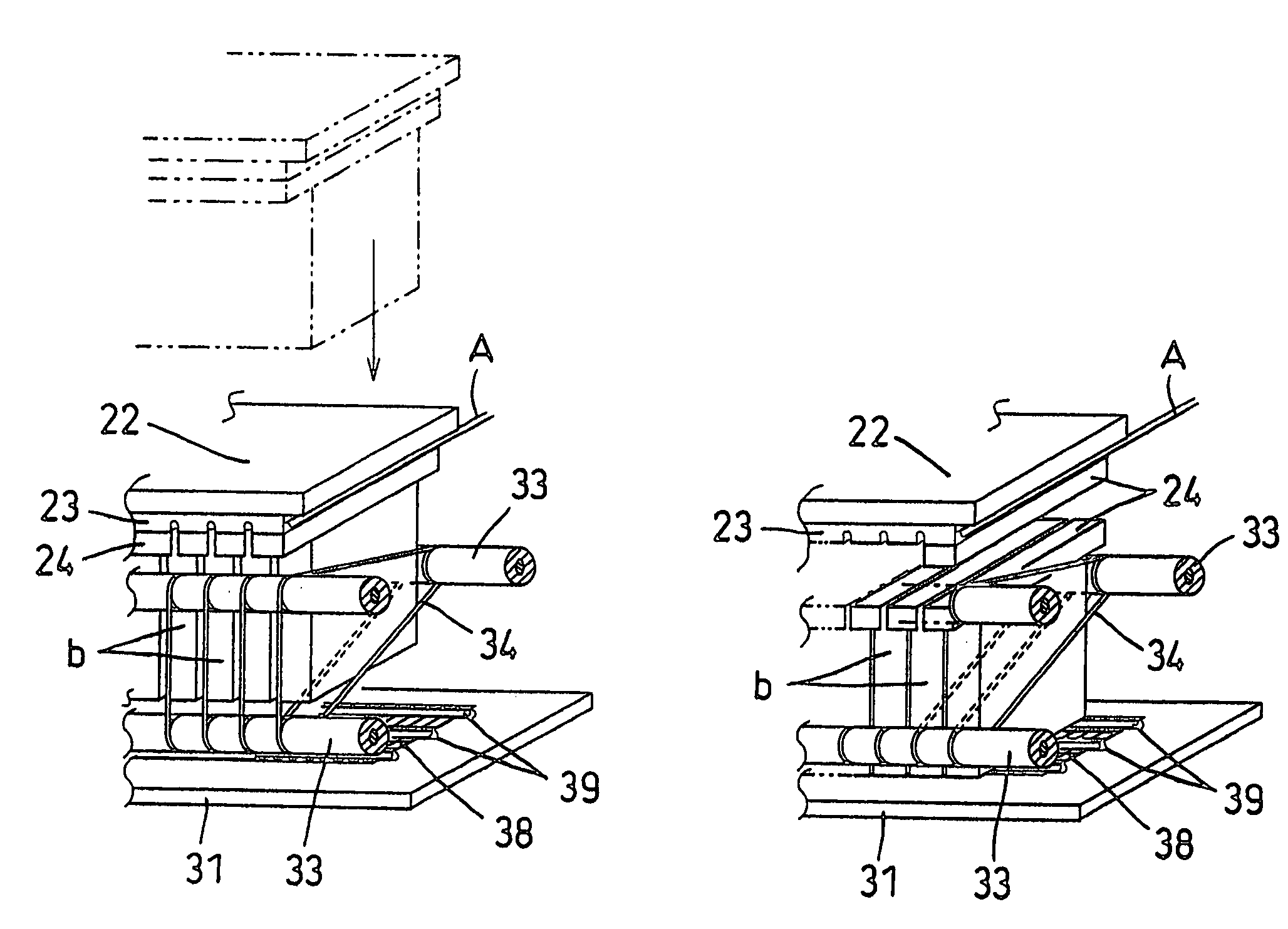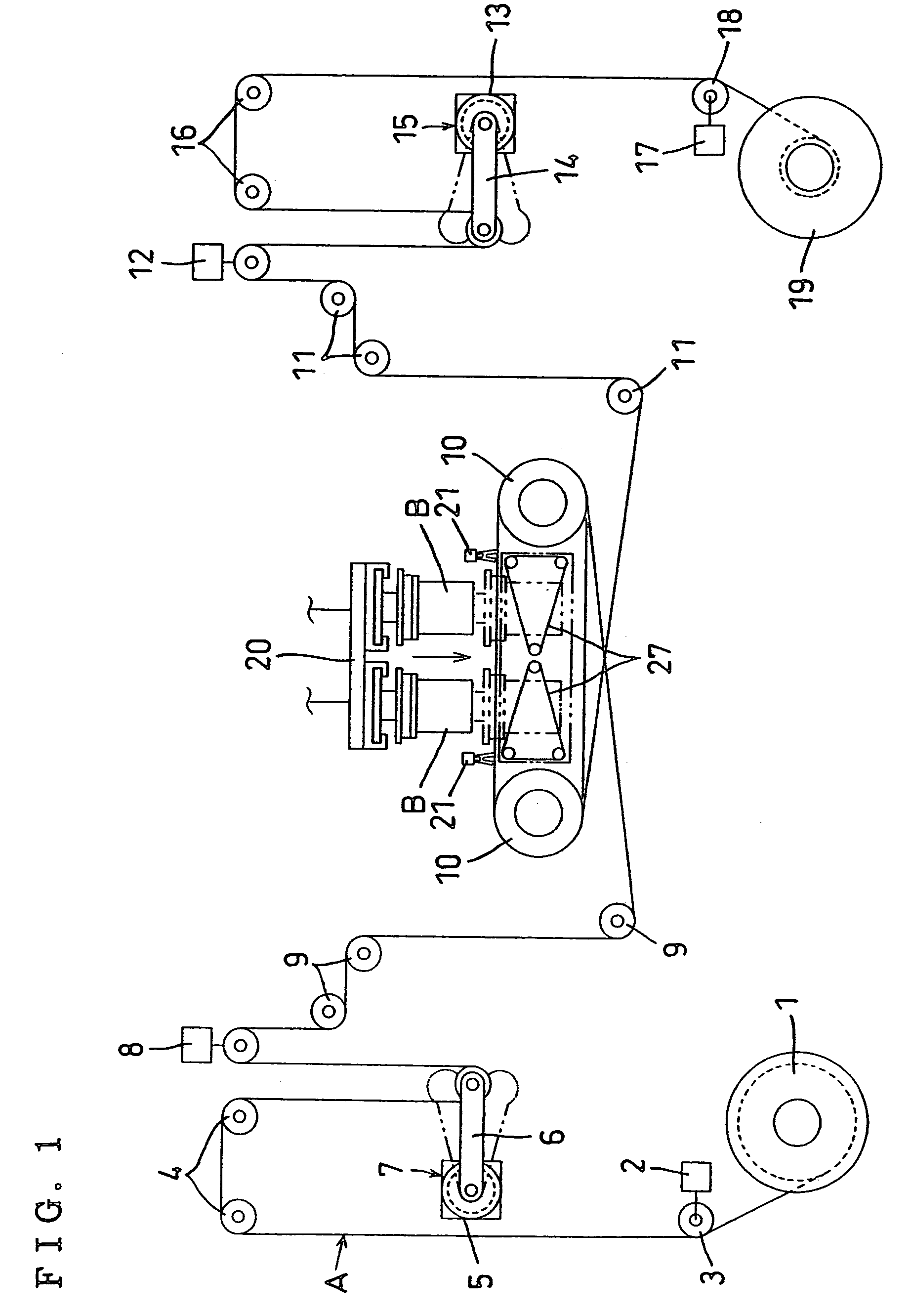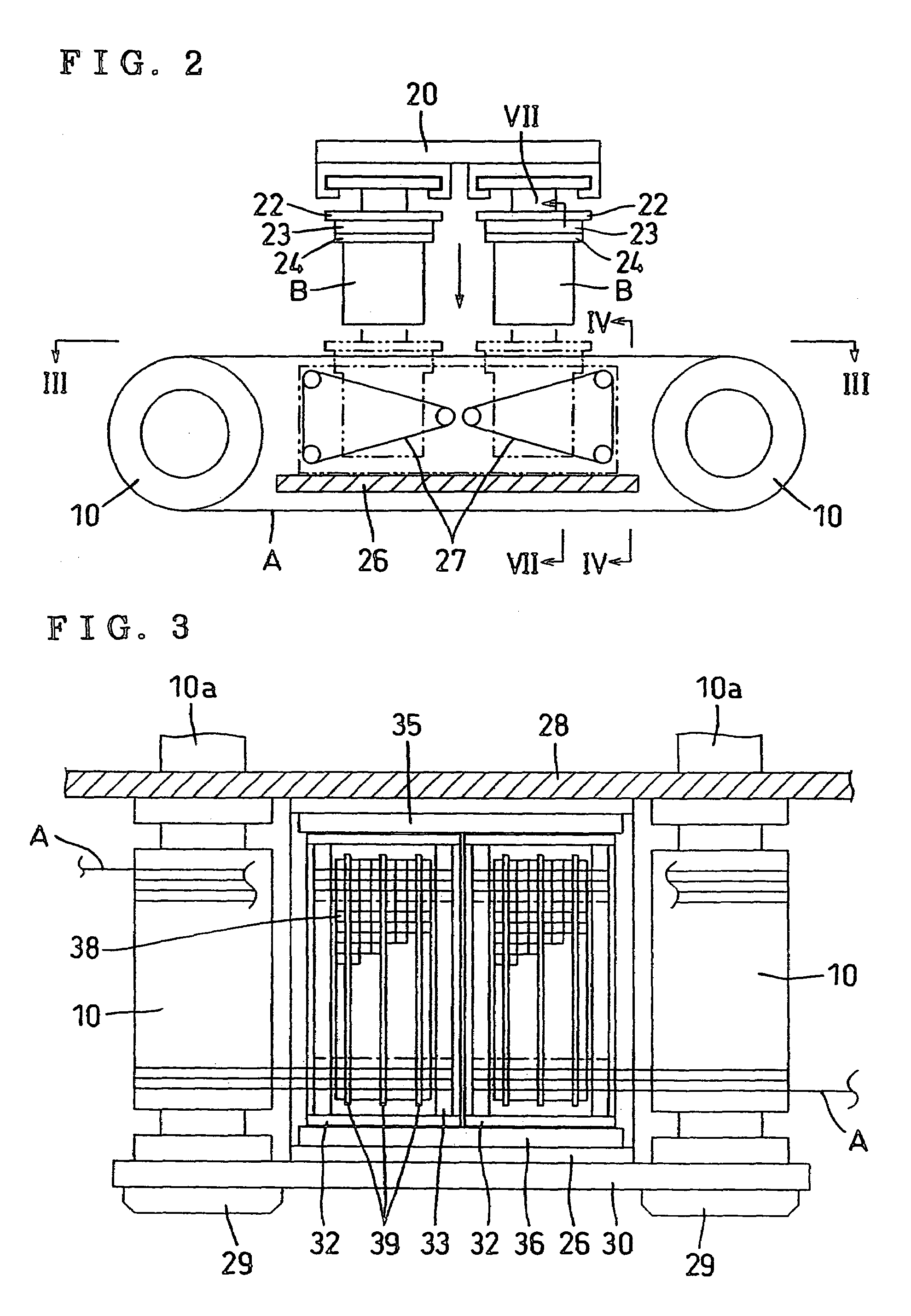Cutting method by wire saw and cut workpiece receiving member in wire saw
a cutting method and wire saw technology, applied in the direction of workpiece holders, sewing machine elements, manufacturing tools, etc., can solve the problems of reducing yield, m or lately 80 m is undesirably formed, and the wafer weighted down with the slurry liquid b>53/b> breaks and falls, so as to prevent the deformation of the wafer due to the flexure and enhance the cutting accuracy
- Summary
- Abstract
- Description
- Claims
- Application Information
AI Technical Summary
Benefits of technology
Problems solved by technology
Method used
Image
Examples
Embodiment Construction
[0037]A detailed description of a preferred embodiment according to the invention will be given below in reference to the attached drawings.
[0038]FIG. 1 shows the entire structure of a wire saw. A wire A drawn from a feed side real 1 is adapted to be introduced through a feed side traverser 3 to be driven by a motor 2, a tension mechanism 7 including an encoder 5 and a tension arm 6 via a plurality of guide pulleys 4, a load cell 8 for measuring the tension of the wire A and a plurality of guide pulleys 9; to form a wire array by winding numerous times across a pair of work rollers 10 juxtaposed on both sides at a predetermined interval; and thereafter, to be wound around a retrieving side reel 19 through a plurality of guide pulleys 11, another load cell 12 for measuring the tension of the wire A, another tension mechanism 15 including an encoder 13 and a tension arm 14, a plurality of guide pulleys 16, and another retrieving side traverser 18 to be driven by another motor 17.
[0039...
PUM
| Property | Measurement | Unit |
|---|---|---|
| thickness | aaaaa | aaaaa |
| diameter | aaaaa | aaaaa |
| diameter | aaaaa | aaaaa |
Abstract
Description
Claims
Application Information
 Login to View More
Login to View More - R&D
- Intellectual Property
- Life Sciences
- Materials
- Tech Scout
- Unparalleled Data Quality
- Higher Quality Content
- 60% Fewer Hallucinations
Browse by: Latest US Patents, China's latest patents, Technical Efficacy Thesaurus, Application Domain, Technology Topic, Popular Technical Reports.
© 2025 PatSnap. All rights reserved.Legal|Privacy policy|Modern Slavery Act Transparency Statement|Sitemap|About US| Contact US: help@patsnap.com



